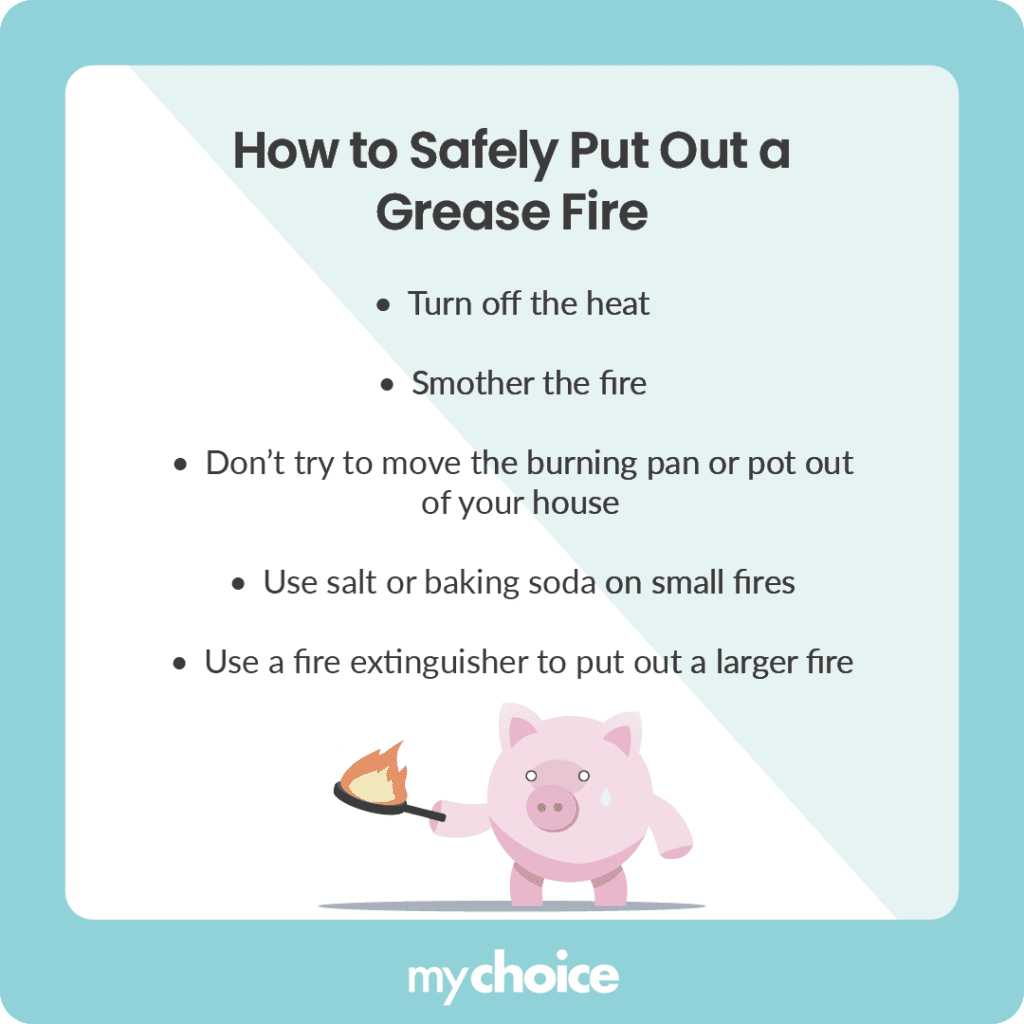Grease fires are a significant hazard in Canadian kitchens. Unattended cooking fires are one of the most common causes of house fires in the country, with a significant number of these involving grease fires. You can reduce the risk of such fires by keeping a clean kitchen, but how often should you clean your kitchen and what else can you do to prevent this hazard?
Read on to learn tips on how to prepare your home against fires and extinguish house fires safely. We’ll walk you through how to put out a grease fire and what should you not do when trying to extinguish one.
What Steps Can I Take to Plan Ahead?
Being proactive is key to minimizing the risk of grease fires in your home. Here are some steps you should take to protect your home and stay prepared:
How to Safely Put Out a Grease Fire
Precautions are just one part of keeping your home and loved ones safe from grease fires. Knowing how to extinguish a grease fire safely is crucial. Here’s what to do when you’re facing this situation:

What Not to Do During a Grease Fire
Knowing what not to do is just as important, so you can prevent a grease fire from spreading. Here are things you should take care to avoid:
Key Advice from MyChoice
- Apart from regularly scrubbing down kitchen surfaces, you should regularly inspect your fire extinguishers so you’re prepared for grease fires. Make sure they’re accessible, unexpired, and fully charged.
- Consider hiring professionals to deep-clean your kitchen’s duct and ventilation systems at least once a year to prevent grease buildup and reduce fire risks.
- Always monitor your cooking. If you need to step away from time to time, set a timer to remind you to check on your food and the stove.








